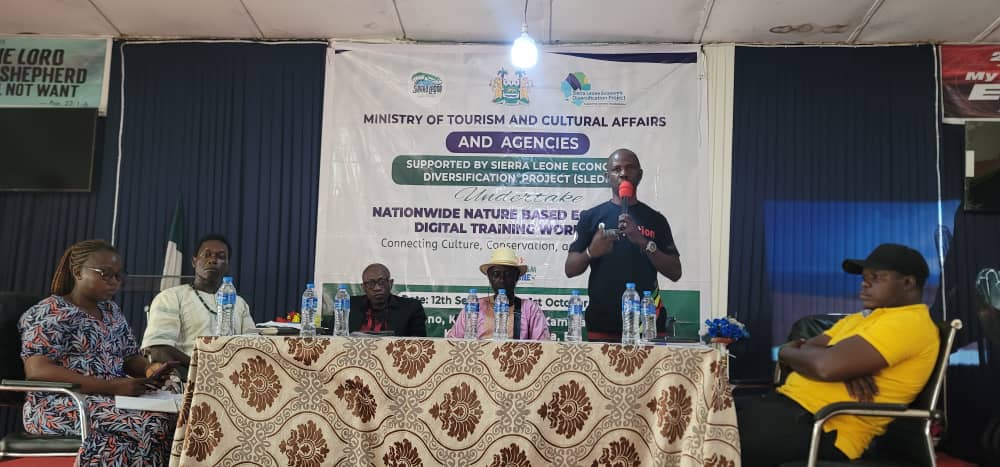The Ministry of Tourism and Cultural Affairs (MTCA) and its agencies, with support from the Sierra Leone Economic Diversification Project (SLEDP), have extended the nationwide Nature-Based Digital Ecotourism Training to Kono District, furthering the Ministry’s commitment to building capacity and advancing sustainable tourism across the country.
The training, held at the District Council Hall, was chaired by Assistant Director of Tourism Travel and Exchange Program, Hilton Leigh, who in his remarks highlighted the importance of ecotourism as a driver of community empowerment, environmental stewardship, and local economic growth. The Deputy Director of Tourism, Travel and Exchange Program, Idrissa Bangura, presented the purpose of the endeavor, stressing the need to equip communities with skills and strategies to integrate digital tools, sustainable practices, and cultural promotion into tourism development.
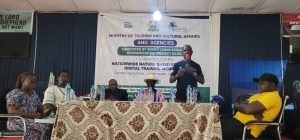
Facilitators anchored their presentations on content creation for Sierra Leone’s tourism and cultural attractions, the tourism value chain, biodiversity conservation, and sustainable tourism practices. Participants engaged actively, reflecting on how they could tailor these lessons to Kono’s unique attractions and history.

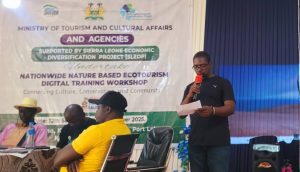
Chiefdom stakeholders applauded the initiative and expressed their commitment to implement the lessons learnt, pledging to work with the Ministry to advance ecotourism at the local level. Participants also signed up to the Ministry’s 2025 Year of Ecotourism Campaign, reinforcing their ownership of the process.
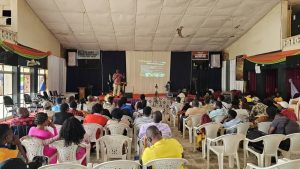
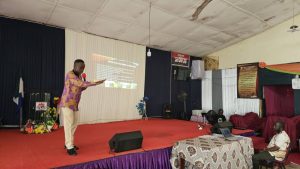
Beyond the training sessions, the MTCA team and participants undertook field visits to several prominent attractions in Kono. These included Love Garden (Kondayque Centre), a serene eco-friendly facility that hosts events and provides a natural relaxation space; Tomudu Village, the mass gravesite of sixty people who were burnt and buried together during the war; the Savage Pit, where a Savage soldier-turned-rebel beheaded victims and disposed of them; Diamond Lodge, a well-known accommodation facility where the proprietor shared the history and growth of the lodge in meeting guest demands over time; and Captain Lendy’s Colonial Gravesite in Waiyma, a site of significant historical value tied to the war and colonial history.
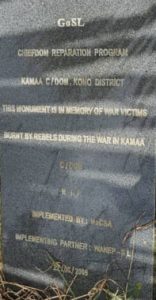
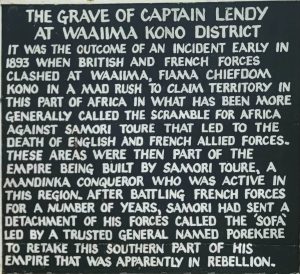
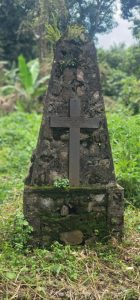
The field visits provided participants with a deeper understanding of Kono’s cultural and historical narratives, and how these can be positioned as part of Sierra Leone’s broader ecotourism offerings.
Through such engagements, the Ministry continues to strengthen local capacity while simultaneously laying the foundation for Kono to emerge as a district that integrates history, culture, and sustainability into its tourism development.
MTCA Communications

